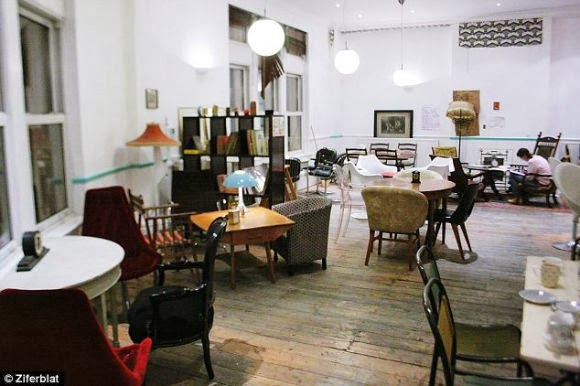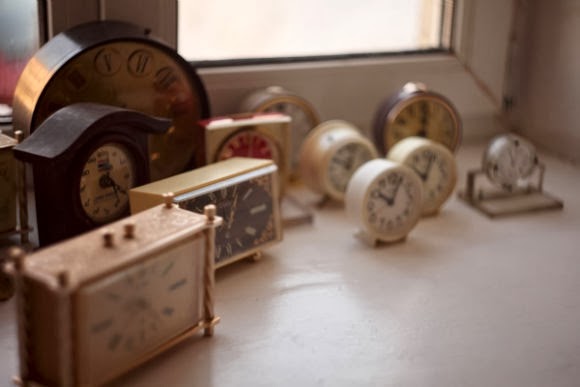It was
September of 2011 in Moscow, that the first ever Ziferblat was established. It was a relaxed
feel-at-home / café / meeting place, that amongst other things formed as the
place for new music start-ups, a place where goods were baked and jams were
made, with a carefully selected library, and what ultimatelly became the
proving gropund for most of the Ziferblat team’s ideas and projects. Now over 2
years from the original realisation date, the Ziferblat is counting 8 locations
in Russia and one in London, UK, all interestingly diversified, but with a
unique characteristic in their conception.
In London,
an average cappuccino at a artisanal café costs around £2.65 (3.20Eur, 4.35USD)
. At the newly opened Ziferblat café, you can get as many cappuccinos as you
want for free – but there is a catch – you have to pay for every minute you
spend there. The pay-per-minute café idea comes from Russia, where multiple
Ziferblat cafés have popped up around the country in the last few years, after
the original outpost in Moscow proved successful. Rather than paying for goods,
customers are paying for the space and comfort. The cost at Ziferblat is 3p per
minute (ie. £1.80 per hour, or 2.15Eur, or 2.95USD) – which means you could
stay in the cafe for almost ninety minutes at the cost of that cappuccino.
Whilst there you can tinkle on the piano, make yourself a coffee with the
self-serve espresso machine or grab some cookies from the cupboard and milk
from the fridge. It is like a friend’s apartment, where you feel perfectly
comfortable helping yourself. [1]
Ziferblat
means clock face in Russian and German (Zifferblatt). The idea is guests take
an alarm clock from the cupboard on arrival and note the time, then keep it
with them, before, quite literally, clocking out at the end. There's no minimum
time. Guests can also get stuck into the complimentary snacks (biscuits, fruit,
vegetables), or prepare their own food in the kitchen; they can help themselves
to coffee from the professional machine, or have it made for them. There's even
a piano – an idea that could seem brilliant or terrible, depending on who takes
the seat. [2]
In their
own words : “Ziferblat is a place where everyone can feel at home. Here you are
free to be yourself; you can work, do some art, read a book, play piano, get
acquainted with good people, attend events, drink as much tea or coffee as you
want — in other words, do whatever you like as long as you respect the space
and the other people in it. Ziferblat’s doors are open to everyone. Each
Ziferblat guest becomes a sort of micro-tenant of the space, responsible for it
and able to influence its life. You will be welcomed by the Ziferblat community
and able to work with them to help create, supply and develop this project. Everything
is free inside except the time you spend there; and by paying for the time
you’ll be making a donation towards the further development of this social
experiment.”
[Ref.] Ziferblat info booklet : http://ziferblat.net/files/Ziferblat-Secret-Knowledge.pdf





No comments:
Post a Comment
Note: Only a member of this blog may post a comment.